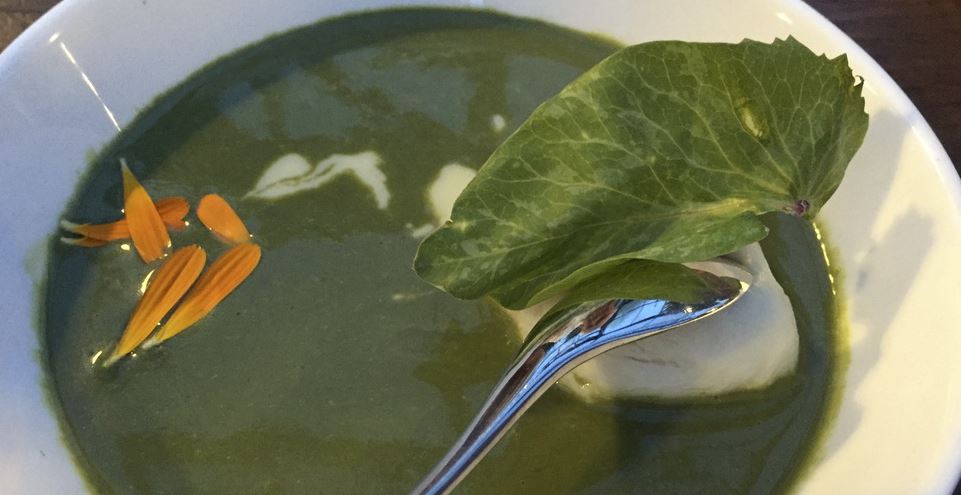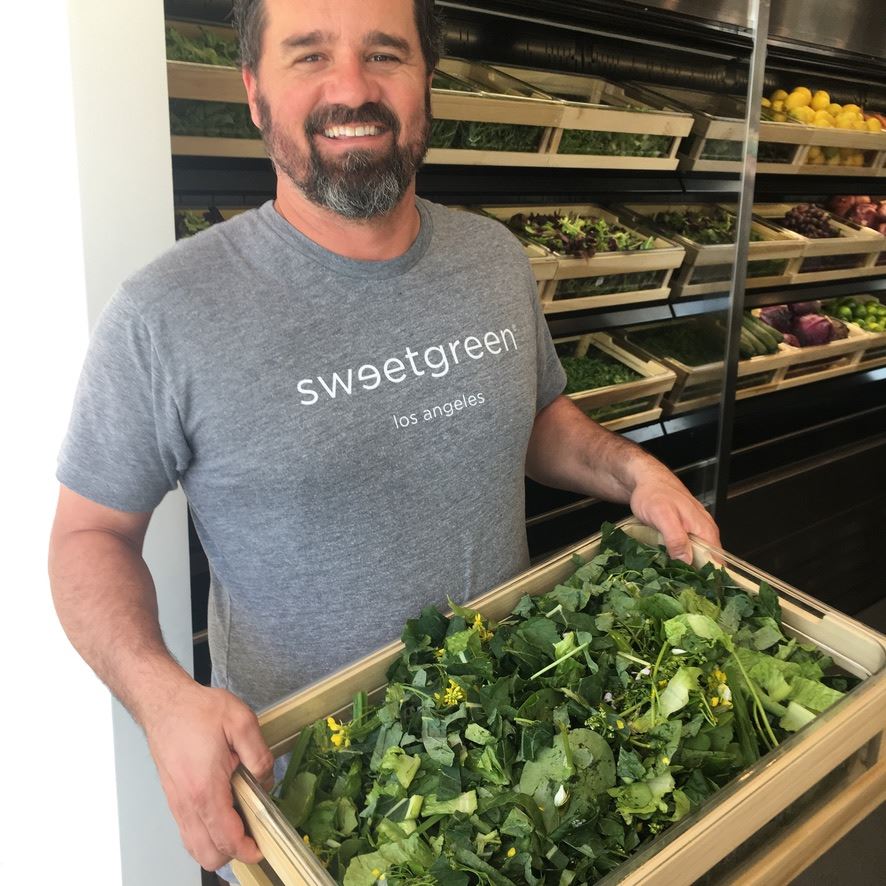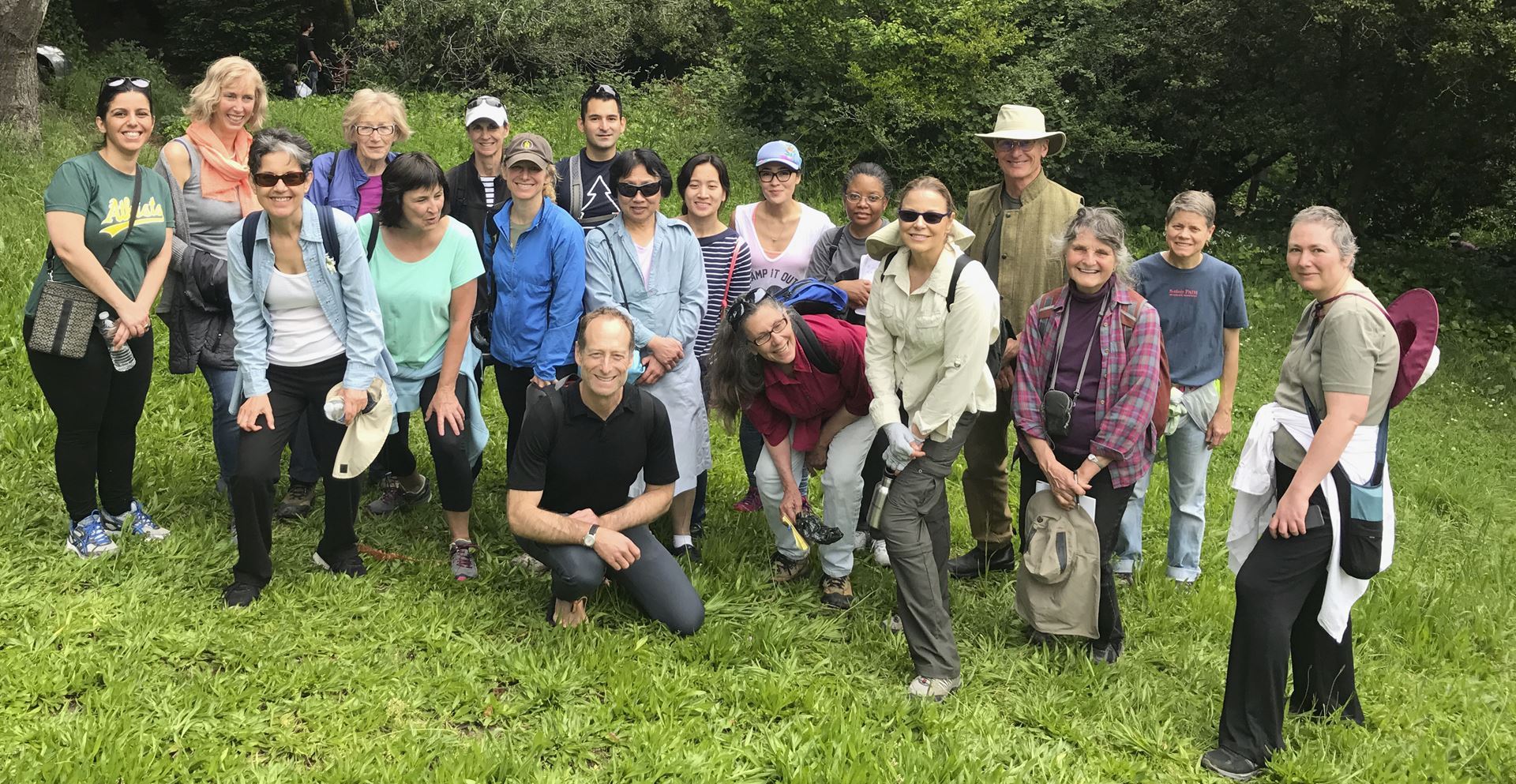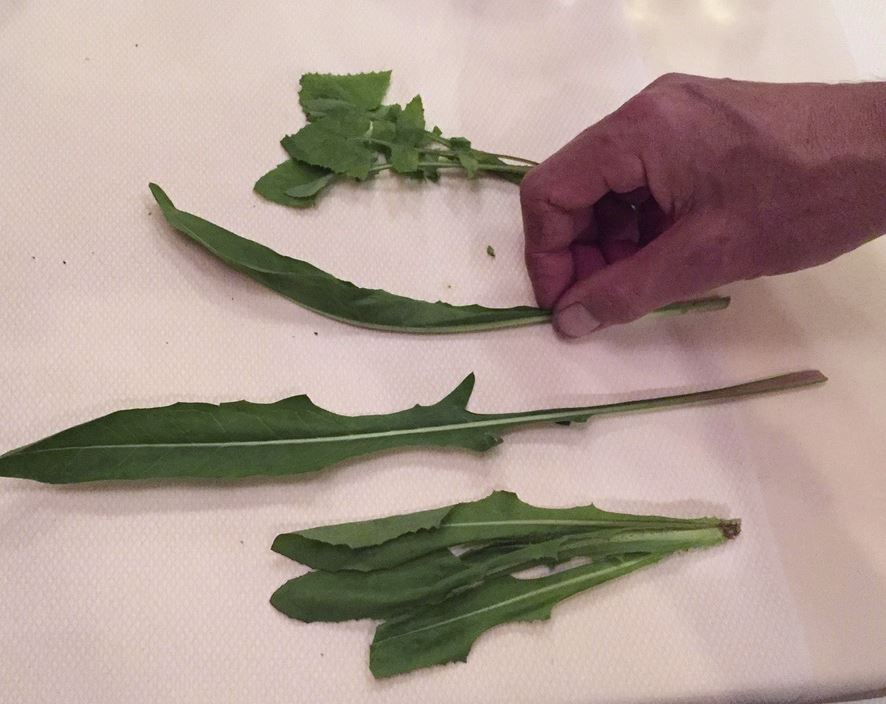Get inspired to harvest the feral by joining in with Wild and Feral Food Week, Association of Foragers member Philip Stark.

The seventh annual global Wild/Feral Food Week will take place May 21--29, 2021.
Wild/Feral Food Week takes place worldwide. For the last two years, we have had participants on every continent except Antarctica, cooperating to get "weeds on plates" (and in cups) around the world.
Wild/Feral Food Week has a number of goals:
• To introduce chefs, bartenders, eaters, and drinkers to new ingredients and "re-normalize" traditional foods that have fallen out of fashion due to industrialized agriculture.
• To establish a supply chain for wild and feral foods, including "harvesting between the rows" on farms.
• To promote foraging and foragers.
• To promote biodiversity on farms and sustainable/regenerative farming practices, including the use of edible cover crops and treating weeds as a resource rather than an enemy.
• To promote biodiversity of our diets--one of the strongest predictors of individual health.
• To remind us of who we are: hunter-gatherers intimately tied to the natural world and its complex abundance.

We would love to promote any public activities or offerings you have planned during that week.
This year, AoF is getting involved officially.
You're Invited!

How it works
• You do whatever you were already planning to do, or add a special event.
• Submit your event(s) using this form as soon as you can, and we will do what we can to shine a light on it through social media, etc.
Whatever else happens, we will at least build community and document the international interest in wild and feral foods.
Participants must agree to follow the AoF Principles and these tenets.
• Many wild and feral foods are delicious, with flavors and textures that are different from cultivated foods. They provide a special culinary opportunity, specific to season and locale.
• Foraging should be conducted responsibly, in a way that promotes biodiversity, sustainability, and resilience of the food system and of our individual diets. Foraging practices must consider time and place. We endorse and follow the principles of the Association of Foragers.
• Wild and feral foods on farms can provide biodiversity, resilience, delicious nutrition, and income. We encourage farmers to embrace wild and feral foods as economic cover crops, to "harvest between the rows," and to bring wild and feral foods to market.
• By expanding food choices and raising public awareness, we seek to promote a just, inclusive, sustainable, resilient, biodiverse, restorative, nutritious food system that supports public health and reduces the negative consequences of industrial systems of food production.
• We advocate public policies that allow and encourage responsible foraging on public land. In addition to its health and educational benefits, foraging, especially of non-native invasive species, can play an important role in "pest" control.
• Foraging is healthful not only because of the nutrients it puts on the table: the activity itself is good for our bodies and our brains. It promotes healthy ecosystems by encouraging stewardship of natural resources and personal responsibility for our habitat—be it wild, rural, suburban, or urban. It feeds and sustains social, cultural, and economic relationships and ancestral knowledge.
• Food culture is world heritage. Everyone should learn to recognize common edible plants. Knowledge of wild and feral food should be available to all. For this reason, we do not claim any proprietary rights to information about wild and feral foods, and we share all our work using permissive licenses, such as CC-BY.

Summary of past participants
Many members of AoF have participated in previous years, as have other foragers, wildcrafters, farms and farming cooperatives, noteworthy chefs, thought-leading restaurants, and progressive, ecologically minded businesses including (among others):
Foragers and Wildcrafters
• Galloway Wild Foods (Mark Williams)
• Forage London (John Rensten, Peter Studzinski)
• Forage Frolics (Richard Mawby)
• Edible Leeds (Craig Worrall)
• Forage Fine Foods (Liz Knight)
• Elijah Holland
• "Wildman" Steve Brill
• Life by Lisen (Lisen Sundgren)
• Haandplukk (Kristin Nielsen)
• Savage Kitchen (Sunny Savage)
• Veld and Sea (Roushanna Gray)
• First Hand Experiences (Patricia Nunes)
• Fishing and Foraging Wales (Matt Powell)
• Thalli Foods
• Go Foraging (Martin Bailey)
• Four Season Foraging (Maria Wesserle)
• Mushroom Table (Matthew Rooney)
• Food Evolutions
• No Taste Like Home (Alan Muskat)
• Morcella Wild Foods (Bryan Jessop)
• Aura Cilento (Luca Cella)
• Strong Arm Farm (Heidi Hermann)
• Shared Cultures (Eleana Hsu)
• The Backyard Forager (Ellen Zachos)
• Leeds Indie Food /
• Feral Kevin and more!
Restaurants / Chefs / Caterers
• Chez Panisse
• Restaurante Manu
• The Buck and Birch
• Inver Restaurant
• Lysverket
• Norn
• The Gannett
• Dirt Candy
• Fork
• Ned Ludd
• Pinoy Heritage
• Sweetgreen
• Wolfgat
• Hoggorm Pizza
• Shiso Studio at Mrs Phink's House
• Gjelina / Gjusta
• Mission Heirloom
• Mission Chinese
• Orchard Kitchen
• Backyard Forestville
• Fradis Minoris
• MTN
• Botanik
• Ray
• The Tasting Kitchen
• The Rare Breed Chef
• Sanchez Cantina
• The Temple Club
• Farmacia dei Sani
• Solare Ristorante
• Sobremesa Culinary Tours and many more!
Farms
• Capay Vally Farms
• F.E.E.D. Sonoma
• Five Springs Farm
• Green String Farm
• Holistic Ag
• Honeycutt Farm
• The Living Wild Project
• Ron Finley's "Gangsta Garden"
• Strong Arm Farm
• Top Leaf Farms / Farm the Roof
• Veritable Vegetable
• Feral Heart Farm
• Kiss the Ground Garden
• Live Oak Farm
• Marin Roots Farm
• Resilient Farm
• Sonoma County Herb Exchange
• Seaquoia Wild Seaweeds
• SingleThread Farm and many more!
Distilleries, Breweries, Bars, and Food Makers/Purveyors
• The Botanist / Bruichladdich Distillery
• Oakland Spirits Company
• Native Bar
• Manly Spirits
• Scratch Brewing
• Tealeaves
• Endorfin Foods
• Volcano Kimchi
Other institutions
• DTU Skylab/FoodLab
• Nordic Food Lab
• BCulinaryLab
• Faenza Art District